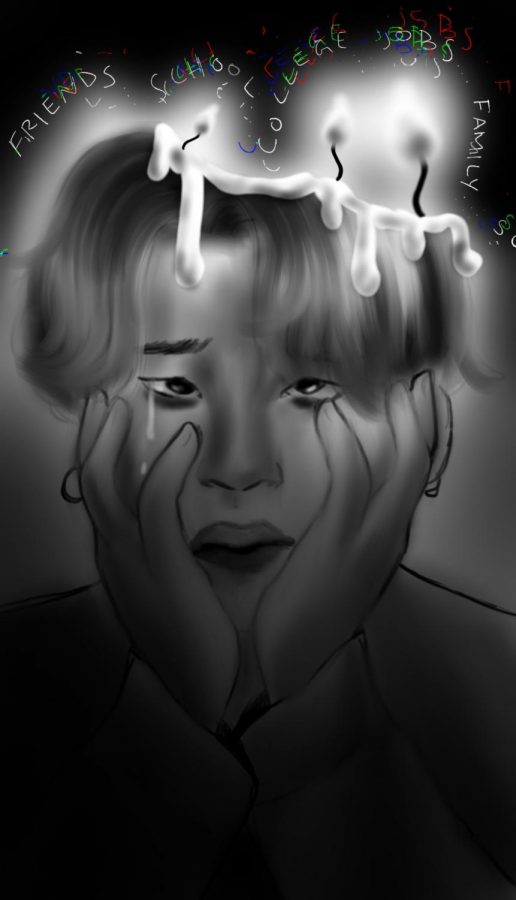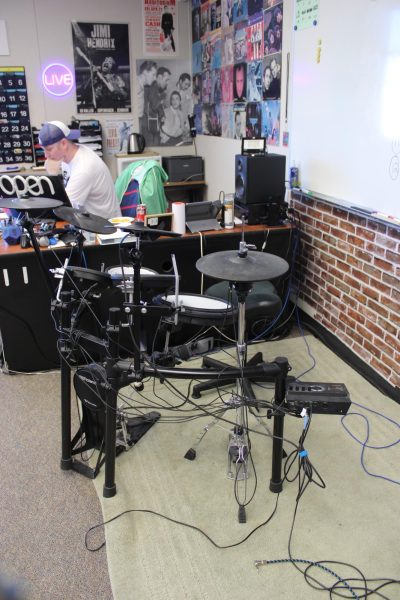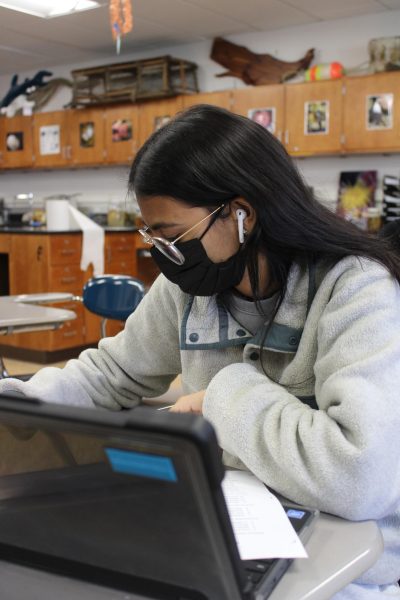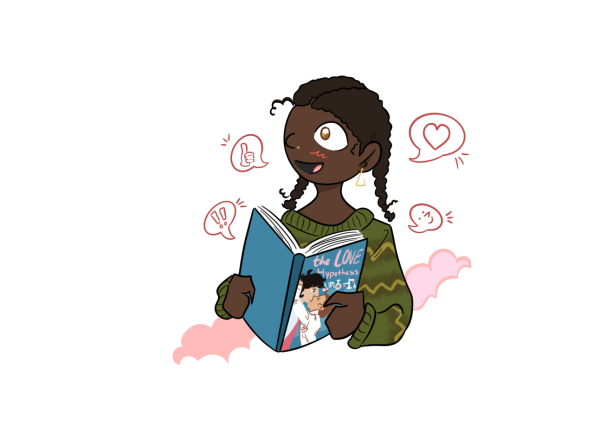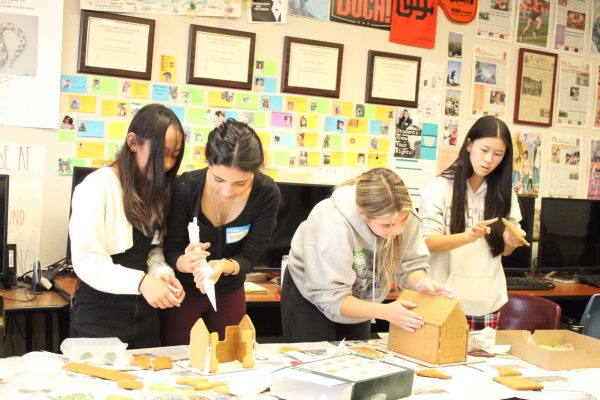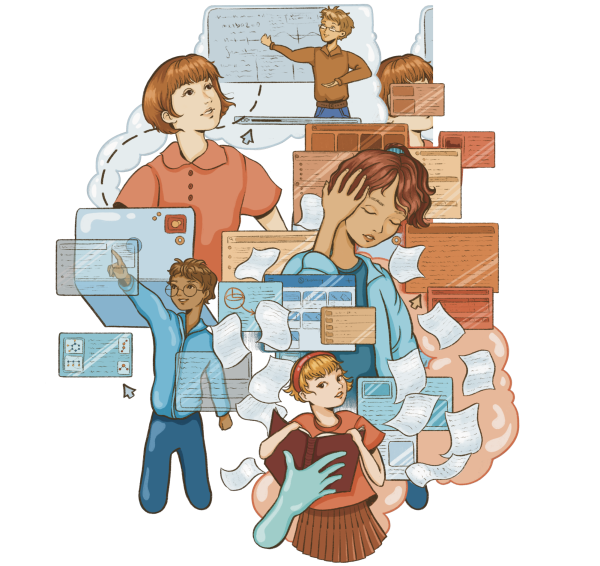Burning out during quarantine
A year of online learning has created Zoom fatigue for students and teachers alike
After a year of staring a computer screens in lieu of being in the classroom, many students and teachers are burned out with online learning.
March 13, 2020 is a day that every student will remember.
Hopes were high as everyone received an email stating that school would not resume until after spring break. Less than a week later, in-person learning was cancelled for the rest of the 2019-2020 school year, and emotions changed.
Many students, including freshman Esha Setty, were optimistic even when the shelter-in-place order was issued..
“Going into quarantine, it sounded fun because we would be staying at home all day,” Setty said. “Now, I just want to go back to school especially because I’m in my freshman year.”
Setty is not alone. Remote learning and quarantine has slowly worn down on the emotional and physical health of students, teachers, and staff alike.
Among the main causes of student burnout were a lack of motivation, stress and distractions from remote learning, and not being able to interact well with teachers and classmates.
“Doing online school is unmotivating and distracting,” Setty said. “There’s so many things that can take you off course…I just don’t feel like we get things done.”
Sophomore Kanav Bansal emphasizes how stressful remote learning is at times, for many different reasons.
“I feel like this stress is caused by the many things that have changed since remote learning first started,” Bansal said. “Methods of college preparation are much different now, and it’s difficult to connect with teachers.”
Quarantine and remote learning have taken a physical and mental toll on students and teachers alike. World History teacher Benjamin Andersen has experienced this first hand with his students.
“I feel students having to get in front of a computer all the time can be overwhelming at a certain point,” Andersen said. “People are just tired, everything’s the same every day.”
Like many teachers, Andersen has also felt less inclined to spend more time on planning for classes, and feels online learning is a challenge.
“It’s gotten really difficult for me because I’m big about separating home and work,” Andersen said. “Home is where you should relax and not have to think about work. With this, it’s not possible.”
Seniors in particular have been affected dramatically, missing out on the final year of a traditional sports season, prom, and other important events. Senior Ken Vejby is one of these deeply disappointed students.
“I hate not being able to go on the senior trip, it’s horrible,” Vejby said. “I know we can’t just have things in the pandemic though. I hope we can make it up later on, like maybe in a year or so.”
Vejby noted how he had a lighter workload as a senior, but still saw himself losing motivation for homework.
“I’ve burned out in a way to where if I’d be met with the normal workload, I wouldn’t be able to get it done easily,” Vejby said. “I’ve spoiled myself to where I’ve gotten used to the lighter workload.”
Overall, the majority of students are burned out and tired of quarantine and remote learning. Patty Mullins, the student support director of Cal’s Wellness Center, has seen many people losing a general interest in school.
“Pretty much 100 percent of the students I work with are facing some sort of burnout,” Mullins said.
Mullins emphasizes the importance of students having positive self-talk, as well as an upbeat mindset. She tells every Wellness Center visitor how resilient and powerful they are, encouraging them to think positive thoughts and understand their capability not only in school, but in society as well.
Many students are having a difficult time coping with quarantine and the new struggles that have resulted from it. Mullins reminds students that many things are out of their hands, and to only focus on the things that are within their own power.
“We cannot control the number of assignments that are given, but we can take care of ourselves so that we can better cope, exercising, hydrating, balanced eating, and sleep,” Mullins said. “If you take care of yourself, you can better deal with what life throws at you.”

Jett Gold is a sophomore at Cal High, and is in his second year of reporting for the Californian. Jett enjoys playing sports, and does wrestling and track...
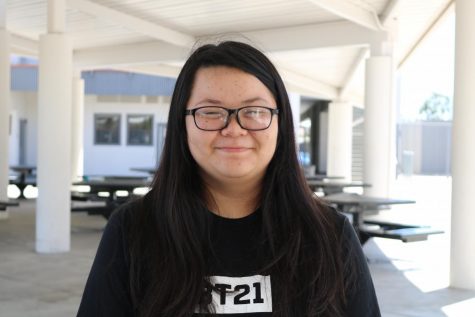
Michelle Nguyen is a senior at Cal High and is features editor for the Californian Newspaper. She’s also the publicist for Cal High Interact, Interact...
